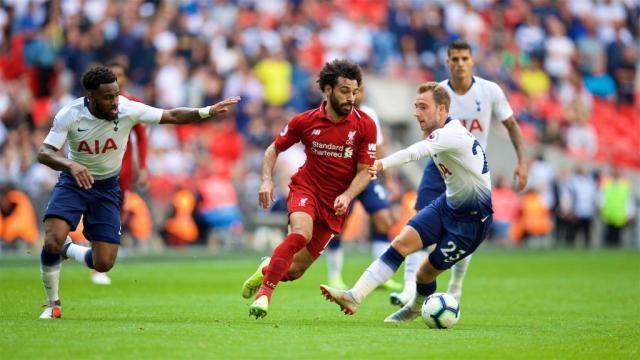Since the start of the 2018/19 Premier League season in August, pundits and fans alike have questioned whether Tottenham Hotspur has the credentials to compete with the giants of English football for yet another season. A lack of activity in the summer transfer market, something which Spurs fans have become accustomed to over the years, sparked widespread criticism among supposed football experts. For most onlookers, it demonstrated the club's lack of ambition and confirmed they would struggle to maintain the upward performance curve under Mauricio Pochettino.
Spurs struggle to maintain strong start
After three wins from their opening three fixtures of the season, including a first victory at Old Trafford since 2014, Spurs responded to the criticism in the perfect manner. Even the mainstream media began to suggest that this could be the season Tottenham claim the silverware which has eluded them since winning the League Cup a decade ago.
Having lost on their last three outings, however, the nature of the performances in each of those games are a cause for concern; the question marks around Tottenham’s mental fortitude, physical capacity and strength in depth have returned to the fold. The recent performances of Harry Kane, in particular, have done little to quell the concerns over his physical and mental state, which first became a topic of debate during this summer's World Cup.
Kane is adamant he feels physically and mentally sharp, and that he is not suffering from the kind of cumulative fatigue that Gary Neville has spoken about in recent weeks as a Sky Sports pundit. There is, however, something not quite right with Kane and indeed Spurs more generally, and whether the talismanic striker realises it or not, physical, and perhaps more importantly, mental exhaustion may well be the most logical explanation.
Spurs stats don't lie
The statistics relating to Tottenham’s physical output throughout the 2017/18 campaign, in addition to the number of their players who were involved for the duration of the World Cup over the summer, heavily supports the notion that fatigue is diminishing the team's current performance levels.
Comparisons with the other clubs who made up the Premier League’s top five last season do little to quash such conjecture.
Twice as many Spurs players contributed over 3,000 minutes in the Premier League last term than players from Manchester City, Man United, Chelsea or Liverpool and by November 2017 Pochettino’s men had covered more total distance than any of the other top five clubs. Moreover, Dele Alli topped the charts for most sprints during the 2017/18 campaign, the only player to breach the 2,000 barrier. Christian Eirksen’s ranking at 8th for the same statistic left Tottenham as the only team with multiple representatives in the top 10, concrete evidence of the workload undertaken at the club.
When you consider that only Manchester City had more World Cup representatives among Premier League teams, then Tottenham’s potential plight of fatigue looks more and more likely. Of the club's 12 players who travelled to Russia, a staggering nine were involved in the tournament until the semi-final stage at least. That’s at least two more players than either Manchester clubs or Chelsea and over double the number of players from Liverpool.
Perhaps the most startling statistical comparison, however, can be made between the total number of Premier League minutes played during the 2017/18 season by those players who reached at least the semifinals of the World Cup with their national sides. Tottenham players again come out well on top when compared to the other teams which made up the Premier League’s top five.
They accumulated a staggering 178%, 61%, 53% and 49% more minutes than their Liverpool, Manchester United, Chelsea and Manchester City counterparts. Per player that works out at almost five more games when compared to Liverpool; just under two more games than Manchester United players; over six games more than Manchester City players and over four games in excess of their Chelsea peers.
It isn’t just the extra physical exertion, which is clear for all to see, that may be beginning to take its toll on the Lilywhites, however. A World Cup represents significant time away from home, from friends and family and familiar surroundings. It constitutes four weeks of intense pressure and requires the expenditure of a significant amount of emotional energy.
These factors should not be overlooked when considering the overall level of fatigue experienced by those players who competed in the latter stages of a World Cup tournament off the back of featuring heavily for their respective club sides throughout a long Premier League season. There is little denying, statistically at least, that the current make up of Tottenham’s squad has left them more vulnerable to a post World Cup energy slump than any of their main Premier League rivals.
Worryingly for Spurs fans, with games in the league, European competition and two domestic cups coming thick and fast, the opportunities for rest and recuperation are few and far between!




